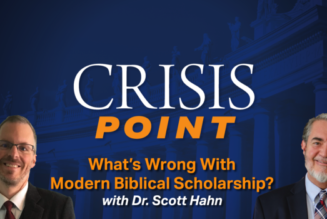
A recent article on Friendship from the Survey Center on American Life reports:
Many Americans do not have a large number of close friends. Close to half (49 percent) of Americans report having three or fewer. More than one-third (36 percent) of Americans report having several close friends—between four and nine. Thirteen percent of Americans say they have 10 or more close friends, which is roughly the same proportion of the public that has no close friends (12 percent).
One of the many troublesome aspects of the modern age of which I have written before is the demise of friendship. While the terms “friend” and “friendship” might be bandied about rather easily today, they do not usually mean friendship in its deeper and original sense. Rather, we use the terms to refer to acquaintances rather than friends. True friendship has a depth, history, and stability. It involves some sort of commonality of life and a deeper knowledge of the other.
Fr. Reginald Garrigou-Lagrange, drawing on the Thomistic tradition, has this to say about friendship:
Every true friendship, St Thomas tells us, implies three qualities: it is first of all the love of benevolence. By which a man wishes good to another as to himself … [Further] Every true friendship presupposes the love of mutual benevolence, for it is not sufficient that it exist on the part of one person only …. Lastly … friendship requires a community of life (convivere). It implies that people know each other, love each other, live together, spiritually at least, by the exchange of most secret thoughts and feelings. Friendship thus conceived tends to a very close union of thought, feeling, willing, prayer, and action (Garrigou-Lagrange, The Three Ages of the Spiritual Life, Vol II, pp. 188-189 Tan Publications).
Notice the emphasis on sharing private thoughts and feelings, as well as the close union of thoughts, feelings, actions, prayers, and wills. True friendship involves more than the knowledge of acquaintances.
A director of a clinic for the treatment of psychological matters once recounted that as he conducted entrance interviews for those beginning an inpatient treatment program, he would ask them how many friends they had. He would often receive expressive answers such as “Oh, I have lots of friends!” Their answers indicated that they did not really understand what he meant. So he would rephrase the question: “How many people do you share deeply with? How many people on this planet know almost everything about you? How many know that you’re here at this treatment program and why? Did any of them help to get you here?” Questions like these tended to generate blank stares.
Fewer and fewer people have relationships of this deeper nature. True friendships, with all the qualities described above, are increasingly rare in our culture today.
There are many reasons for this.
- People today are quite mobile. It is not unusual for people to move several times during their lifetime. Fewer and fewer people grow up, live, and die in the same town, and even those who do have long roots in a certain community will tell you how dramatically it has changed over the years.
- Our daily activity takes us far and wide. Because of the automobile, trains, and especially planes, many people no longer limit their activities to their home town or places nearby. They may commute a couple of hours each day and be involved in activities far away from their neighborhood churches, schools, doctors, and hospitals. They may not even frequent the neighborhood shopping centers. It seems there is little opportunity or need to interact with people who live close by.
- The pace of life today is rapid. We all seem to be in a big hurry to get somewhere else. The idea of lingering over a cup of coffee seems rare. The few times we do take our time to converse and such things, it is usually in loud bars where communication is actually quite difficult. And if perchance we are in a setting where we are in the presence of others for a lengthy period (e.g., a subway, train, or plane) most people are focused on their cell phones. We seem more interested in information about people far away, many of whom we have never even met.
None of these factors helps in the development of deep, lasting friendships. Most people in our lives are merely acquaintances. We know very little about most of the people we interact with, even those we encounter on a daily basis. Even family relationships are often shallow. Long dinners or extended conversations are rare as family members run off to practices, meetings, shopping, and work.
The lack of deep friendships in the true sense of the word causes many issues. True friends help form our personalities, completing what we lack. True friends rebuke sins and other troublesome quirks we can develop. True friends encourage and enrich us. Without true friends we remain incomplete. Without the necessary rebuke that friends can give, we can suffer from pride and other egotistical character defects.
Scripture both commends friendship and warns against regarding mere acquaintances as friends.
- Woe to the solitary man! For if he should fall, he has no one to lift him up (Ecclesiastes 4:11).
- Let your acquaintances be many, but your advisers one in a thousand (Sirach 6:5-6).
- A faithful friend is a sure shelter, whoever finds one has found a rare treasure. A faithful friend is something beyond price, there is no measuring his worth. A faithful friend is the elixir of life, and those who fear the Lord will find one. Whoever fears the Lord makes true friends, for as a man is, so is his friend (Sirach 6:14-17).
- Faithful are the wounds of a friend, But deceitful are the kisses of an enemy (Prov 27:6)
- A true friend loves at all times, And a brother is born for adversity (Prov 17:17).
- A man of too many friends comes to ruin, But there is a friend who sticks closer than a brother (Prov 18:24).
- Better is a neighbor who is near than a brother who is far away (Prov 27:10).
Therefore, our friends should not necessarily be numerous. We ought to be selective in what we share and with whom. All the more reason, then, that we should have close friends with whom we share almost everything.
Do you have close friends?
- Are there people who know almost everything about you?
- Are there people who can rebuke you, correct you, or summon you to humility?
- Are there people about whom you know almost everything and whom you can rebuke with love for their own good?
- Is there anyone who looks to you for advice, and who can turn to you for necessary encouragement?
- Is there anyone whom you love and esteem for his or her own sake, not merely for what you can get?
- Is there anyone whom you are not anxious to impress, to whom you can speak the truth, and who will speak to you truthfully?
- Is there anyone who would care enough about you to be present with you in great adversity?
- Is there anyone whom you would gladly assist in his or her time of need?
If so, who? Please consider naming your true friends in your heart.
I pray that you do have true friends, but true friendship is rare in this changing, hurried, and polemic culture. Consider well the need for true friends, for deep friendships that are stable and lasting. We all need true friends.
What has happened to friendship in our culture? How do you see it?
This song is a rather good description of true friendship.
[embedded content]
Join Our Telegram Group : Salvation & Prosperity









